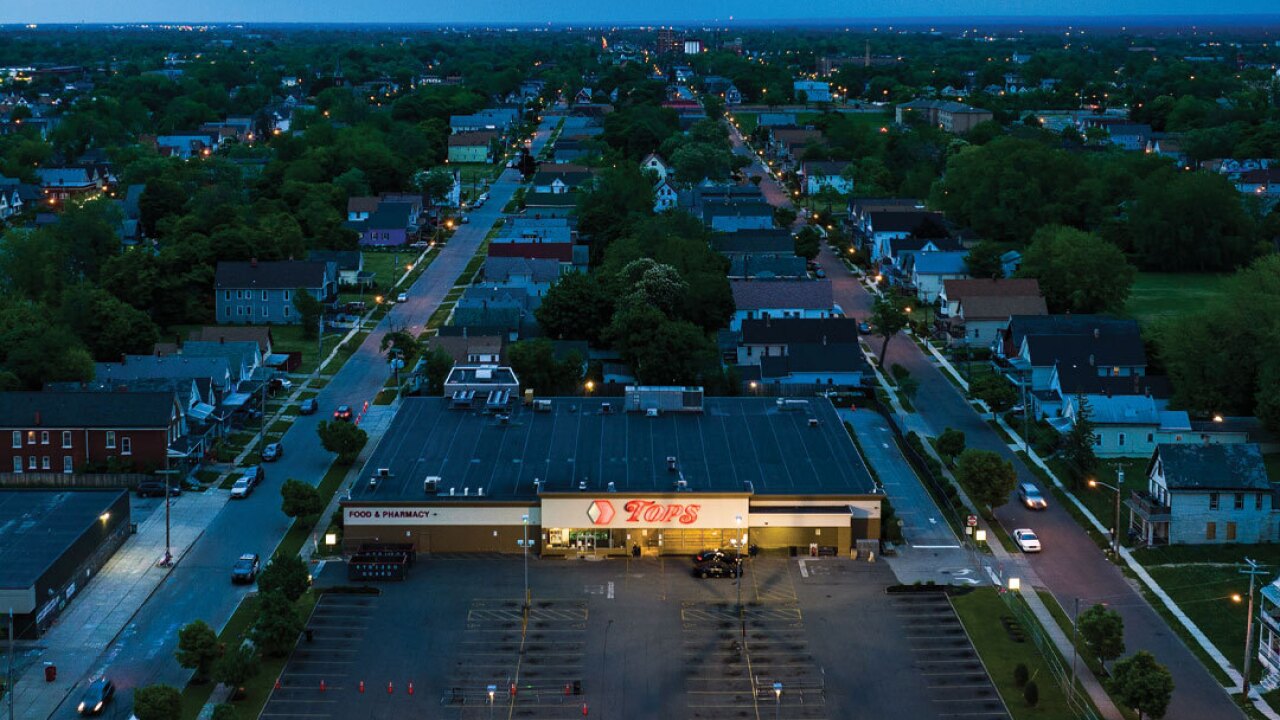Allissa Kline is a Buffalo, New York-based reporter who writes about national and regional banks and commercial and retail banking trends. She joined American Banker in 2020 and previously worked for more than a decade at Buffalo Business First, where she covered banking and finance, insurance and accounting. Kline started her journalism career at the Observer-Dispatch in Utica, New York. She graduated from Colgate University and the S.I. Newhouse School of Public Communications at Syracuse University.
-
Former Flagstar CEO Alessandro DiNello, who had been New York Community's nonexecutive chairman, was named executive chairman after the Long Island bank's stock price fell by more than 59% in a week. New York Community also issued updates on both its deposit situation and its search for a new chief risk officer.
February 6 -
A day after the regional bank's stock tumbled on tough fourth-quarter results and some austerity moves, observers debated whether management just needs time to build enough capital to catch up with growth or if it is still too overexposed in multifamily lending.
By Polo RochaFebruary 1 -
The parent company of Flagstar Bank surprised investors by slashing its dividend, charging off two large real-estate loans and preparing for more trouble in the office and multifamily sectors.
By Polo RochaJanuary 31 -
The megabank failed to adequately protect and reimburse customers who were victims of wire-transfer fraud, according to a lawsuit by the New York Attorney General. Citi said that it follows all relevant laws and regulations.
January 30 -
After the Rhode Island-based company eliminated 650 positions, severance-related costs contributed to a 71% decline in quarterly net income.
January 17 -
The North Carolina-based company said it expects to close about 4% of its branch network, or roughly 80 offices, by the end of the first quarter. The closures come amid Truist's $750 million cost-cutting initiative.
January 3 -
Analysts agree that the Long Island-based bank will probably absorb some losses due to its exposure to struggling segments of the commercial real estate market. But they differ on the extent of the likely damage.
December 12 -
As U.S. credit card balances continue to march above $1 trillion, the number of newly delinquent credit card users now exceeds the pre-pandemic average and millennials and those with student or auto loans are driving the increase in past-due payments, the New York Fed said.
November 7 -
The Hicksville, New York, company beat analysts' expectations on net interest income, but a pair of souring office loans contributed to a 68% increase in nonperforming loans from the prior quarter.
October 26 -
The consulting giant's annual global banking review highlights a stark trend: Over a seven-year period, more than 70% of the net increase in financial assets ended up not on U.S. banks' balance sheets, but instead at insurance and pension funds, sovereign wealth funds, in private capital markets and elsewhere.
October 12 -
The nation's largest bank, which acquired the remains of San Francisco-based First Republic following its failure this spring, has completed its plans to close 21 offices this year. But the consolidation effort is likely to continue.
September 22 -
The Department of Justice is recommending a sentence of 12 months behind bars for Carrie Tolstedt, a former Wells executive who has pleaded guilty to obstructing a bank examination. That's harsher than the recommendation of the U.S. Probation Office.
September 5 -
The racially targeted mass shooting at a Buffalo, New York, grocery store in 2022 has renewed conversations about whether banks have a duty to help segregated, impoverished communities that were shaped in part by discriminatory lending practices. What do banks owe the Black community, and what influence could they have?
July 31 -
The Hicksville, New York, company says its deposit base is stable and poised for growth four months after its acquisition of the failed Signature Bank, some of whose depositors fled to larger banks. Private bankers — including new hires from another failed bank, First Republic — are trying to win back lost deposits.
July 27 -
The Cleveland-based bank says it will submit to a racial equity audit conducted by an outside law firm, as Citigroup and Wells Fargo have previously done. The bank's decision follows a request that regulators investigate Key's mortgage lending practices for alleged redlining.
May 4 -
About $2.9 billion of the deposits the company obtained from the failed Signature Bank had fled as of last week, and executives are forecasting that number to double. However, they say they're "cautiously optimistic" they can lure some deposits back.
April 28 -
The groups also want regulators to downgrade the Cleveland bank's rating under the Community Reinvestment Act. The demands represent an escalation of a dispute over whether Key fulfilled promises it made under a 2016 community benefits agreement.
April 27 -
The Charlotte, North Carolina, company plans to fold the online consumer lending platform LightStream into its broader consumer business. On top of a recent pullback in bond trading, it may also make further reductions in its mortgage business and occupied real estate.
April 20 -
Executives at the Minneapolis bank responded to a research report that highlighted the decline in a key capital ratio after an acquisition last year. They don't plan to raise capital but aim to generate more of it from earnings in coming quarters.
April 19 -
William Demchak of PNC, Brian Moynihan of Bank of America and William Rogers of Truist had their total compensation reduced last year, as stock prices across the industry fell. The previous year, pay for bank chief executives had soared by more than 20%.
April 13




















